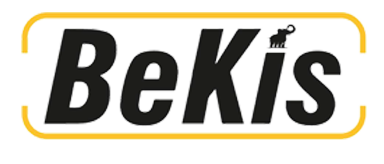- 17 September 2021
- By atomedya
- Bookkeeping

In other words, there can be no restrictions on converting any of the securities listed as cash and cash equivalents. Let’s illustrate the Cash Short and Over account with the petty cash fund. Assume that the company has a petty cash fund of $100 and its general ledger account Petty Cash reports an imprest balance of $100. Let’s now assume that when the petty cash fund is replenished, there is $6.00 on hand and there are $93.00 of petty cash vouchers. I rang up a $95 pair of yoga pants correctly for $95, but I miscounted the cash I received for the pants.

Over and Short: Definition and What It Means in Accounting
- For example, the cash shortage needs the adjustment on the debit side while the cash overage needs the adjustment on the credit side.
- This is because they involve with cash sales that currency changes are required.
- If its balance is on the debit side, it is usually presented in the miscellaneous expenses.
- The primary use of the cash over and short account is in cash-intensive retail or banking environments, as well as for the handling of petty cash.
- In the table above, the fifth column represents the value Apple assigned as cash and cash equivalents.
Cash is money in the form of currency, which includes all bills, coins, and currency notes. It also includes money orders, cashier’s checks, certified checks, and demand deposit accounts. A demand deposit is a type of account from which funds may be withdrawn at any time without having to notify the institution. Examples of demand deposit accounts include checking accounts and savings accounts. All demand account balances as of the date of the financial statements are included in cash totals. The cash over and short account is the type of miscellaneous account in the income statement.
Viewpoint allows you to save up to 25 favorites.

Assume the same situation except Tom only receives $99 instead of $101. Now cash is debited for $99, cash over and short is debited for $1, and the sales accounting account is credited for $100. The opposite is true for transactions that produce cash shortages. Assume the same situation except that I receive $94 instead of $96 for the sale. Now cash is debited for $94, the sales account is credited for $95, and cash over and short is debited for $1. Cash equivalents have certain benefits over cash that make them better for some investors.

Cash vs. Cash Equivalents
- The cash overage or cash shortage may also come from the sale and other expense transactions too.
- Therefore, the cash over and short is usually at debit balance which represents an expense.
- However, money market mutual funds are not FDIC insured, but may be SIPC insured.
- Assume the same situation except that I receive $94 instead of $96 for the sale.
In this article, we cover how to account for the cash short and over; especially on the cash over and short journal entry. These materials were downloaded from PwC’s Viewpoint (viewpoint.pwc.com) under license. Inventory that a company has in stock is not considered a cash equivalent because it might not be readily converted to cash.

However, both types of financial instruments are very similar and yield similarly low yields. Although, cash equivalents can often yield a bit more interest. A company may report prepaid assets as part of its current asset section. However, because there is risk that a refund cannot be processed timely or there may be only a partial return of funds, prepaid assets are not considered cash equivalents. There are some exceptions to short-term assets and current assets being classified as cash and cash equivalents. The cash over and short account is an expense account, and so is usually aggregated into the “other expenses” line item in the income statement.
What Is the Difference Between Cash and Cash Equivalents?
- If an investment matures in more than 90 days, it should be classified in the section named “investments”.
- On the other hand, if the company has a cash shortage in the petty cash fund, it can make the journal entry with the debit of cash over and short account instead.
- Therefore, money owed from clients is not the same as cash equivalents.
- The term also is the name of an account in a company’s general ledger—the cash-over-short account.
- In contrast, when there is an overage, it is treated as income; thus we recorded on credit.
The account Cash Short and Over provides a way to monitor employees’ cash handling proficiency. You can set the default content filter to expand search across territories. Shaun Conrad is a Certified Public Accountant and CPA exam expert with a passion for teaching. After almost a decade of experience in public accounting, he created MyAccountingCourse.com to help people learn accounting & finance, pass the cash short and over is classified as CPA exam, and start their career. This account is used to record both increases and decreases to profits resulting from errors.



